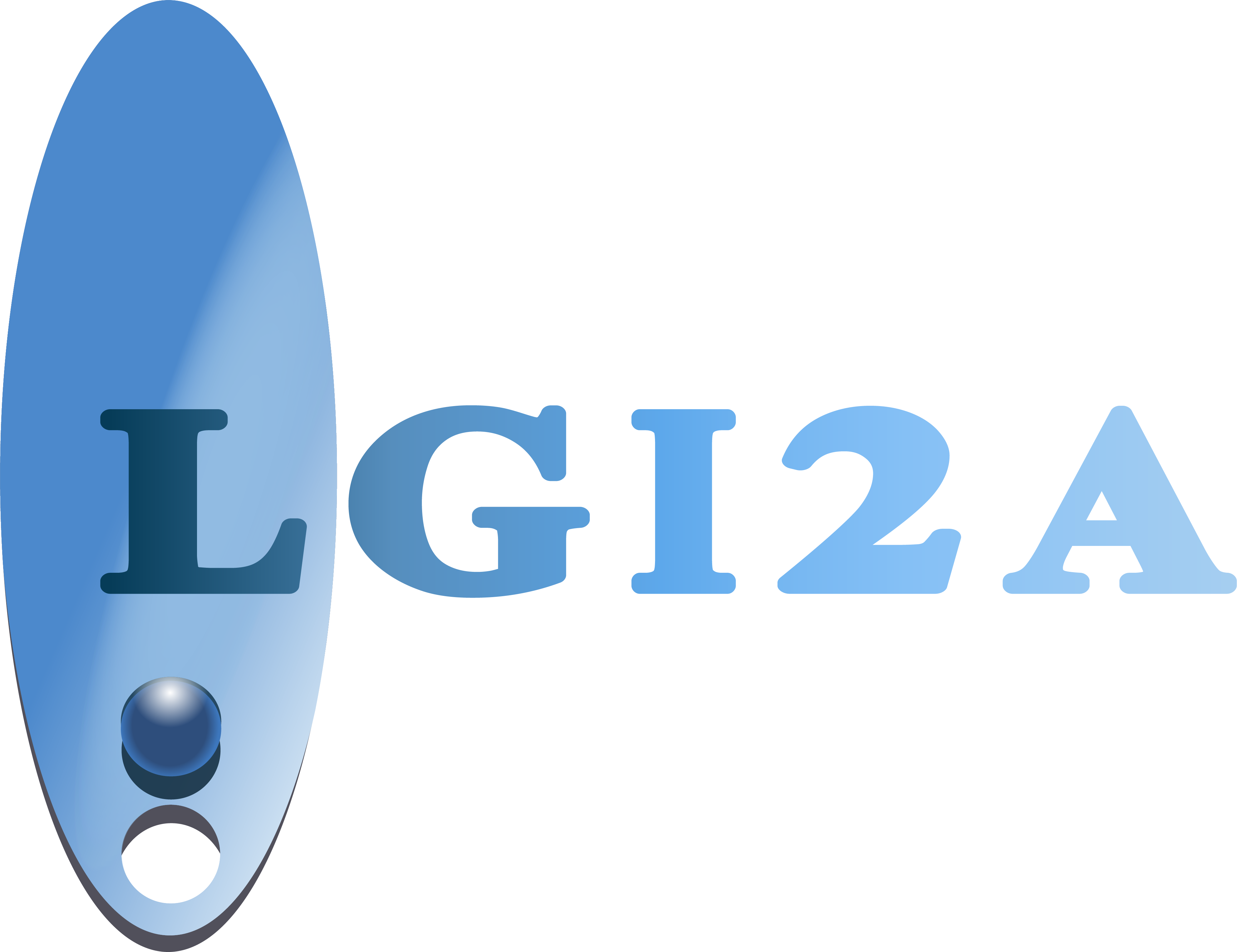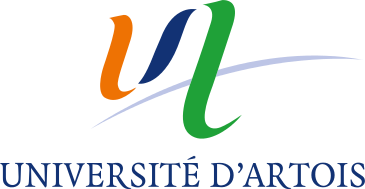-
Digital World and Robotics
-
Energy and Environment
-
Transport and Mobility
Laboratory of Computer Engineering and Automatic of Artois (LGI2A)
Research unit - UR 3926
After almost 20 years of existence, the LGI2A has forged a solid position within the scientific community in its preferred fields of belief function theory, combinatorial optimization and model-less control. Our tools enable us to optimise, simulate and control complex systems taking into account the imperfection of data.
The LGI2A has been structured around a single multidisciplinary team. The LGI2A research area is Decision Support. It is divided into two complementary scientific themes:
• Optimization of Complex Systems (OptiSCo),
• Decision and Fusion of Information(DFI),
The core application areas of our laboratory are sustainable logistics and intelligent mobility, but our national and international collaborations have allowed us to address other areas where decision-making is needed.
-
Hamid Allaoui
Director
Rue Gérard Philippe
Université d'Artois, Faculté des Sciences Appliquées, Technoparc Futura
62400 BETHUNE
https://www.lgi2a.univ-artois.fr

Effectif
Effectif total : 31
Personnel de recherche : 29
Personnel d'appui à la recherche : 1
Skills
• Optimization of Complex Systems (OptiSCo),
• Decision and Fusion of Information (DFI),
For this, the laboratory relies on skills and mastery of tools such as:
• Belief functions that generalize discrete probabilities by making it possible to allocate inseparable degrees of probability on datasets, thus allowing better modelling of ignorance.
• merging information, based on the latter, to aggregate data from different sources,
• Takagi-Sugeno fuzzy control, highly effective for some non-linear systems
• The model-less command based on local modelling, constantly updated, based solely on the knowledge of input-output behaviour.
• Multi-agent simulation to model the operation of autonomous complex systems
• metaheuristics for finding optimal or pseudo-optimal solutions to combinatorial problems,
• optimization under uncertainty (stochastic programming, possibilist programming, etc.)
• Benders decomposition methods, column generation, etc. for accelerating resolution methods
• AHP, OWA methods ... for the multicriteria analysis needed for sustainable development aspects among others
• hybrid approaches that combine these methods.
Example(s) of publications
We focused our efforts on the methods of planning logistics systems. Indeed, planning is very important in an industrial or service enterprise. Thus, our planning research has focused on three aspects that are increasingly attracting researchers in the field: the multicriteria and multiobjective nature of sustainable development, taking into account the uncertainty linked to the imperfection of systems and collaboration between the actors to push the limits of the company-centred vision.
We focus on three levels of planning:
• at the strategic level, there is an interest in designing a sustainable supply chain. The goal is to optimize economic, environmental and social impacts when configuring the logistics network throughout the product lifecycle: 🡭
• at the tactical level, we are interested in collaborative aspects to improve these three indicators of sustainable development. This involves organising the sharing of physical resources (transport, warehouses, etc.) and/or information (forecasts, schedules, etc.): 🡭
• At the operational level, attention is paid to the problems of vehicle turning while taking into account the environmental impact. One application of this problem is car sharing. Production, maintenance and distribution scheduling issues are also being addressed: 🡭
2. Intelligent Mobility
The work carried out in this context aims to take advantage of advances, mainly in the fields of modelling, identification and real-time control of urban, inter-urban and motorway traffic to reduce congestion. The importance of this congestion problem, which is still topical, is reinforced by the various adverse consequences which can be classified as follows: the increasing increase in direct costs: deterioration of infrastructure, accidents, energy consumption,... and increased indirect costs: stress, delays (reduced productivity), pollution,...
• Concerning first of all the traffic flow, our contribution is the development of a so-called «hybrid» approach allowing the two types of modelling to coexist: macroscopic (assimilating the flow of vehicles to a fluid) and microscopic (to represent vehicle interactions at the individual level). Another multi-level approach has also been developed and is based on the multi-agent approach: 🡭
• Inter-vehicle communication, which is the second problem we deal with in the context of intelligent mobility. The vehicle network environment is complex and dynamic, the sources are often heterogeneous, so the information exchanged can often be imperfect. It is then necessary to take these imperfections into account. More generally, we are interested in the issue of decision-making in an uncertain environment: 🡭
All our publications can be found here : here
Collaborations/Partners/Scientific clients
Through the A2U alliance, the CPER (ELSAT2020 programme), the GIS GRAISyHM, the SFR structure on health, and the IRT Railenium we are in close collaboration with the teams of the CNRS CRIStAL laboratories (University of Lille and Ecole Centrale de Lille) and LAMIH (UPHF) of the Region.
On the optimization and logistics aspects, we collaborate:
• with LAMIH (UPHF) and CRISTAL on hybrid single-lens and multi-objective optimization approaches.
• with the LAMIH (UPHF) on the optimization of logistics chains according to the principle of physical internet.
On the control aspects, we collaborate:
• with the LIX (Polytechnique Paris) and with the CRAN on the control without model.
• with the PRISME Univ. Orléans Laboratory on robust control.
On the simulation aspects, we collaborate:
• with the CRYSTAL laboratory SMAC14 team on the development of design patterns for multi-level simulations,
• with UPHV’s IEMN15 laboratory and ENSIAME16 on the creation of a simulation platform for a swarm of nano-drones based on our SIMILAR tool.
On the functional aspects of belief, we collaborate:
• with the CRISTAL laboratory of the University of Lille
• with the UTC Heudiasyc Laboratory
International Collaborations with Foreign Universities
Since its creation, the laboratory has maintained international relations with foreign universities from the following countries: Bulgaria, Tunisia, Romania, Italy to name but a few. They have given rise to joint theses, co-directions of theses or participation in projects.
Bulgaria:
• Bulgarian Academy of Sciences on Dynamic Traffic Routing and Optimization for Urban Traffic Regulation.
Tunisia:
• University of Sfax (co-lead in 2019 on sustainable and resilient supply chain design,
• the School of Engineers of Tunis (co-supervision of thesis) on hospital logistics,
• the University of Carthage (thesis co-supervision) on hospital planning,
• the Institut Supérieur de Gestion de Tunis (ISG): collaboration with the Laboratoire de Recherche Opérationnelle, de Décision et de Contrôle de processus (LARODEC) of the Institut Supérieur de Gestion (ISG) of Tunis started in 2009 with as central themes the functions of belief and the hospital logistics through several theses in co-supervision.
• Sfax Faculty of Science (FSS), with the Department of Applied Mathematics,
Morocco:
• École Supérieure des Mines de Rabat with a joint thesis on optimizing the transportation of dangerous goods.
• Ibn Zohr University in Agadir with a joint thesis on traffic control.
Romania:
• Politehnica University of Timisoara, Romania.
Italy:
• NATO STO (Centre for Maritime Research and Experimentation, CMRE) on distance and conflict measurements in belief function theory.
• Loughborough University: on managing collaborations within sustainable supply chains in the agri-food sector.
Netherlands:
• Wagningen University: on optimizing sustainable development indicators within sustainable supply chains in the agri-food sector.
Collaborations/Partners/Private Clients
A. DEVELOPMENT OF THE SONARIS TECHNOLOGY PLATFORM
- Project sponsored by the CEA TECH HAUTS-DE-FRANCE. In partnership with the CEA TECH HAUTS DE France and EURALOGISTIC: Innovation consists in developing the bases of a new modelling tool (or "digital twin" of the supply chain) through the new SONARIS technology platform: Digital Optimization Solution for Integrated Supply Chain Analysis and Redesign.
B. With DHL as part of the Interreg IVb SCALE project (2012-2015) on managing collaborations within sustainable supply chains in the agri-food sector.
2. Mobility: Thesis under the CIFRE device (Conventions Industrielles de Formation par la Recherche) in partnership with the SNCF on the obvious calibration and fusion of classifiers applied to face blurring.
Applications sectors
- Science / Research
Services provided
• Optimization of vehicle tours
• Road traffic control
• Scheduling and planning optimization
• Optimisation of flows in a warehouse
• Hospital logistics optimization
• Processing information under uncertainty
• Robust control (robots, vehicles, etc.)
• Optimization of service activities
Training offers
• Decision Support
• Merging of information
• Optimization
• Managing uncertainty
• Production management
• Supply chain management
• Sustainable Logistics
• Hospital Logistics
• Planning/Scheduling
• Vehicle rounds
• Information systems: ERP-WMS-TMS
Consulting services
Affiliated institutions / organisations
Groups/Networks/Federations
Doctoral schools
Regional strategic areas of activity
- Digital World and Robotics
- Energy and Environment
- Transport and Mobility
- Intelligent and autonomous vehicles
- Intelligent transportation systems
